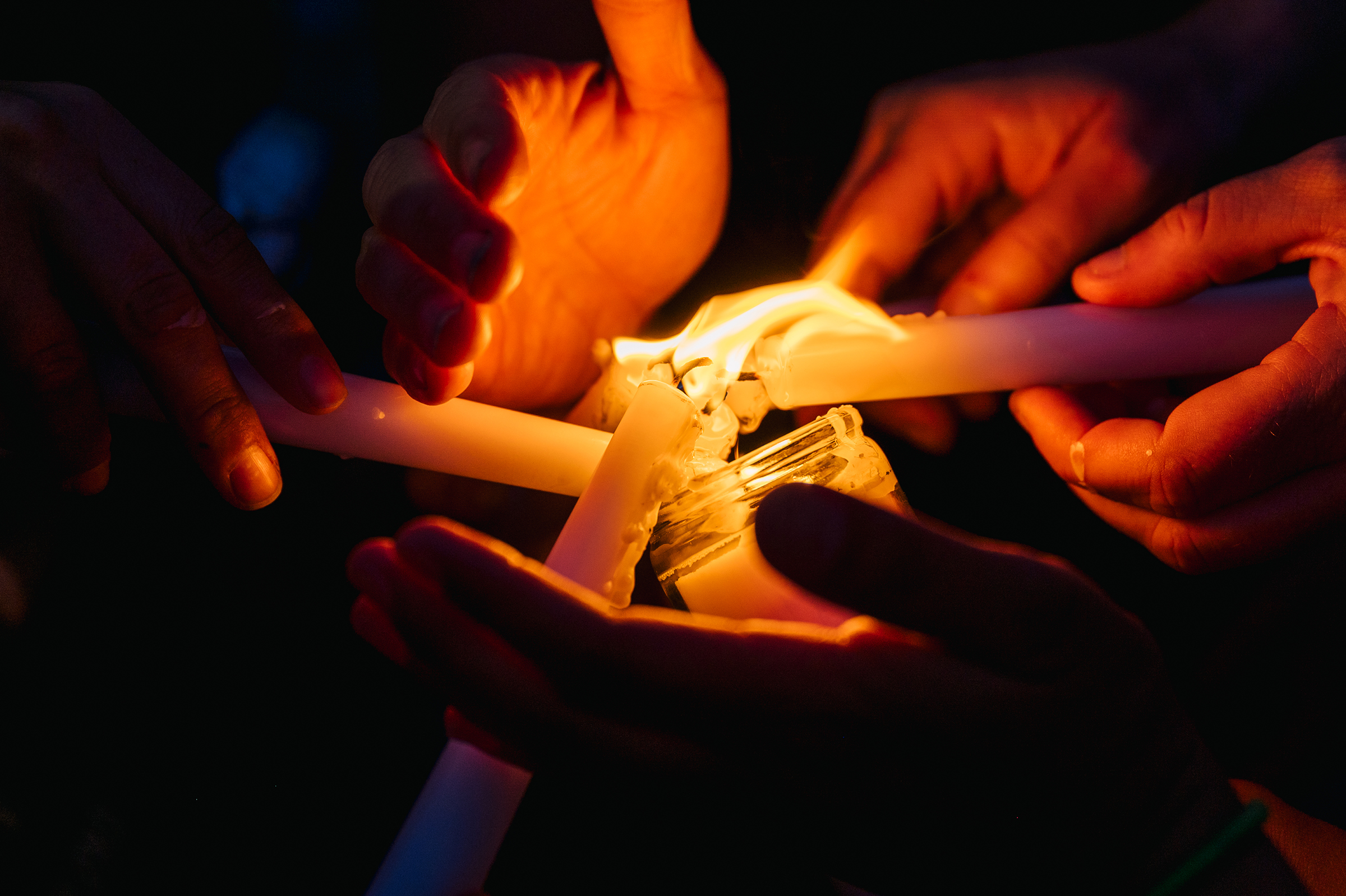
On Nov. 24, in the hour after Judge Timothy Walmsley read out the series of mostly guilty verdicts that could send three white men to prison for murdering Ahmaud Arbery, there was a lot happening around the Glynn County, Ga., courthouse where the trial had taken place. So it’s perhaps unsurprising that a quiet but essential moment went largely unnoticed.
When the courtroom doors opened and Arbery’s mother Wanda Cooper-Jones walked out, she crossed paths with Mona Hardin, mother of the late Ronald Greene. In 2020, Cooper-Jones was initially told that her son was killed during a burglary. In reality, he had been chased and shot dead in the street. The year before, Hardin was told her son died after what Lousianna State Troopers described as a high-speed chase by law enforcement and a crash. Later, video footage of the incident obtained by the Associated Press showed that while Greene had been involved in a chase, he was then stunned, beaten, dragged by ankle shackles and left moaning on the ground while officers wiped his blood from their bodies. Federal officials later found no damage to the vehicle or Greene’s body consistent with a crash. Some of the troopers involved have since died, been arrested or fired in connection with other matters; another, after a brief suspension, remains on the job. But Hardin is still awaiting news about whether the FBI and a U.S. attorney in Louisiana will take action in the case.
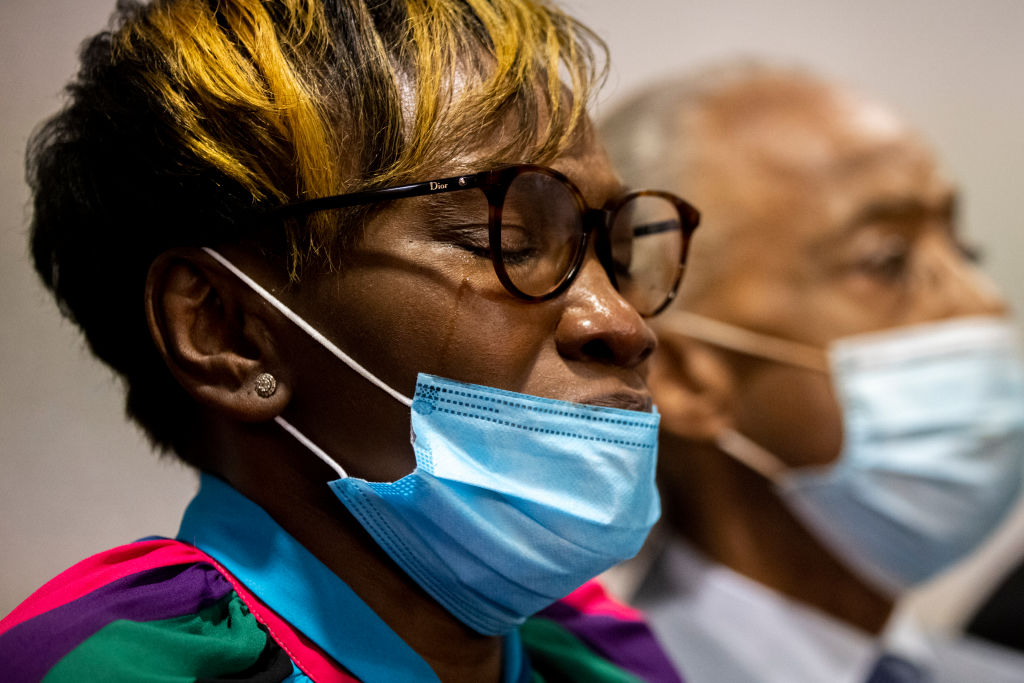
Outside that courtroom, without first speaking a word, the two women—one now in possession of some measure of justice, one in limbo—for several long seconds embraced.
Read more: What Ahmaud Arbery’s Death Has Meant for the Place Where He Lived
When I spoke with her in December, Hardin described the comfort she drew from that moment of compassionate touch between two women who know what it is to grieve dead sons—sons initially blamed for their own fates, with mothers deeply aware of the ways a country founded on the principle of equality is inclined to betray women like them. It was palliative, but part of a long and ugly tradition. Cooper-Jones and Hardin have done in 2021 what Mamie Till-Mobley, mother of Emmett Till, did in 1955, says Davis Houck, a historian at Florida State University: fight for public attention, in the pursuit of justice.
“Justice shouldn’t take those herculean efforts on the part of a mom or a family,” Houck says when we speak, days after the Justice Department closed its only remaining inquiry into the Till murder, nearly 70 years after the crime, “but here we are.”
These women, like so many before them, have ultimately found that while some people care what happened to their sons, many others—people who have no reason to fear a similar fate for their own children—never will in any way that matters.
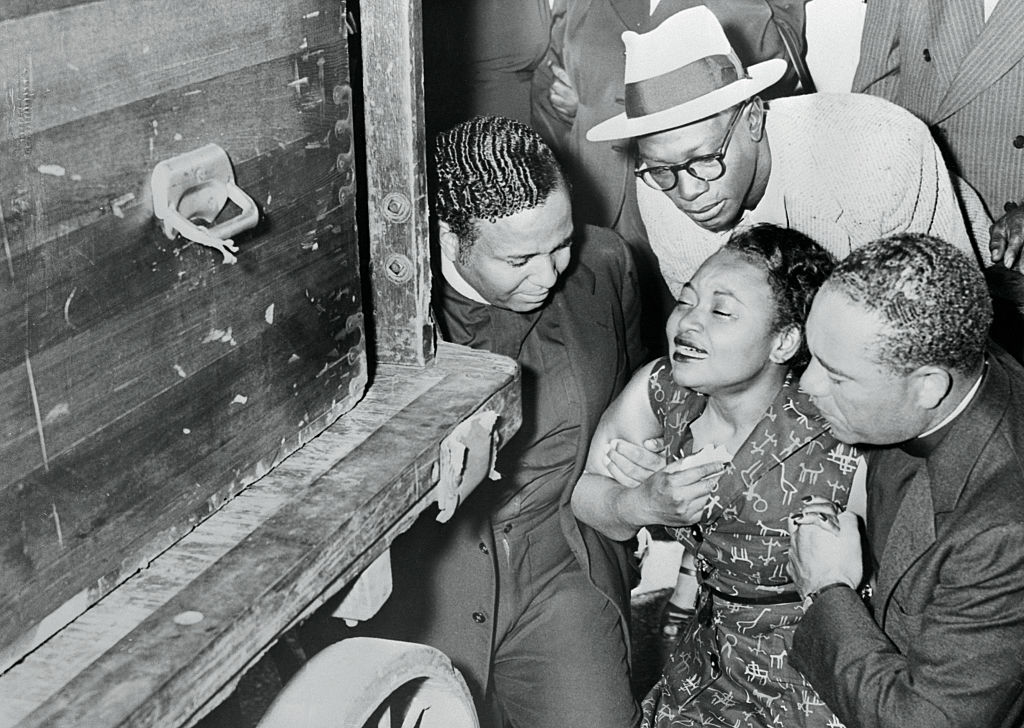
This, the second year of a pandemic, is in many ways a singular time in history. But when it comes to inequality, 2021 is also a year like so many others—a year in which, despite a preceding season of promises and apologia, little of substance has changed. Racial inequality and discrimination are features of American normalcy. So this country that only one year before declared itself awake to inequality found it only too easy to look away.
When March brought a deadly string of shootings at Atlanta-area spas staffed mostly by Asian-American women, a law-enforcement spokesperson in the county where one of the shooting sprees had taken place described the alleged shooter, Robert Aaron Long, as simply a young man who had “a really bad day.” Despite a combined racial and gender dynamic that was obvious to many Americans, police and prosecutors in that county would later say they did not believe they could make a case that the shootings were hate crimes. (They entered into a plea deal with Long in which he agreed to life in prison. Long is still expected to face trial on murder and hate crimes charges next year in connection with the shootings in Atlanta proper.)
Read more: Atlanta’s First Black Female District Attorney Is at the Center of America’s Converging Crises
Research released by the RAND Corporation in December found that—despite ample evidence that such has been the case throughout the pandemic—between July 2020 and September 2021, significantly fewer people agreed than in previous periods when asked if the COVID-19 pandemic has hit people of color harder than white people, in terms of both health and finances. Another report released this month suggests one possible reason why: The survey, from the Making Caring Common Project at Harvard University’s Graduate School of Education, found that while Americans on both sides of the aisle say they rank “uniting the country” as a high priority, “many Americans don’t appear to have substantial concern for people who are different from them in background and character.”
More from TIME
It’s simply possible for many to see their lives as separate from broad and unmistakable patterns of ongoing bigotry. And yet, this year could leave no doubt that a problem persists.
In January, as a horrendous 2020—which, on top of the pandemic, brought the largest volume of hate crime reported by the FBI in 12 years, with more than 60% of the almost 8,300 incidents motivated by racist animus—faded to 2021, a horde of believers in the “big lie” that the election was stolen from Donald Trump invaded the Capitol. They carried with them their anger and fear, their bear spray and the Confederate battle flag. For all the nation’s long and varied history of political conflict, social strife and resistance to change, the full Confederate battle flag had never made it to the Capitol before 2021. Law enforcement officer Harry Dunn testified before Congress that he and other Black officers also been peppered with racial epithets by members of the mob that some Republicans have since tried to recast as mere tourists.
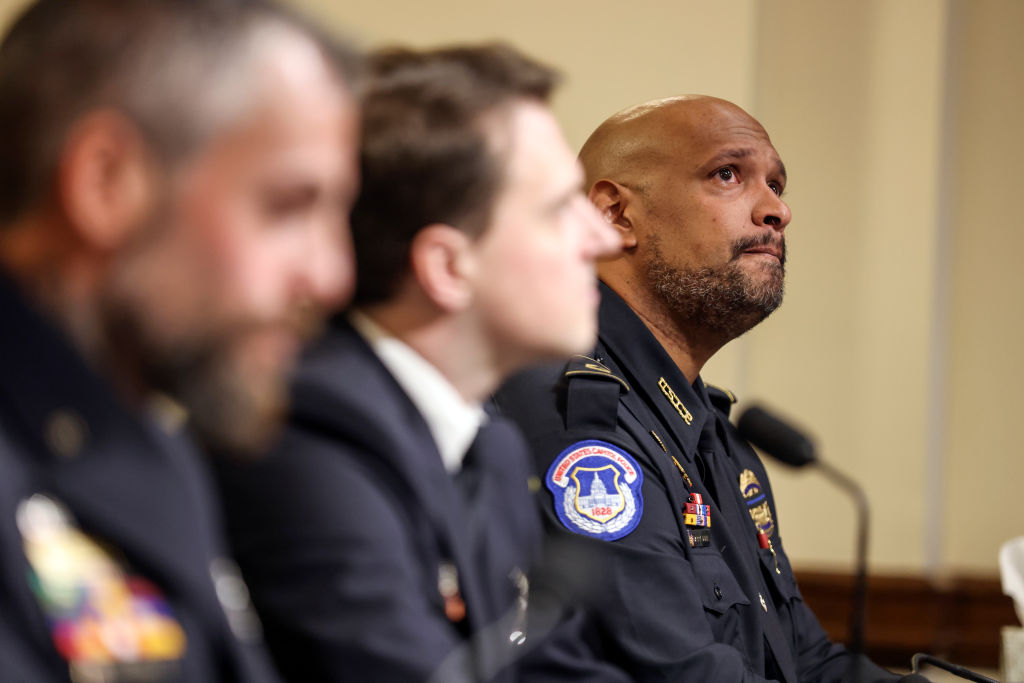
In April, even as a trial in Minneapolis worked toward the rare conviction of a white former police officer for murdering George Floyd, just up the road, an officer shot and killed another young Black man. The officer has said she only intended to use a Taser on him. In the midst of that tragedy, and clashes with protesters outside police headquarters, the Thin Blue Line flag flew overhead.
In May, prompted by a wealthy donor, the University of North Carolina board of trustees blocked the school from granting tenure to Nikole Hannah-Jones, an award-winning Black journalist perhaps best known for spearheading the New York Times’ 1619 Project, which suggests chattel slavery as a lens through which to view American history. (The following month, after a public controversy, she was offered tenure. She declined, choosing to teach at Howard University instead.) The debate underlined the visceral discomfort a significant share of white Americans feel about the nation’s racial history. Throughout the year, the question of that past turned school-board meetings across the country—already caught in conflicts with parents who reject the known science around COVID19 and its spread—ever uglier. Classrooms surged back to their place as key political battlegrounds. In October, a state lawmaker in Texas sent a letter to education officials around the state asking if school district libraries own copies of about 850 specific books as well as any others which may violate a state law that limits how teachers can talk about race, sexuality, identity and human or civil rights. The titles that school officials must now inventory range from a book written by Ruby Bridges, about being the first Black child to integrate a previously all-white New Orleans school, to The Cider House Rules.By November, well-regarded Democratic political advisers—speaking for the party to which most Black voters belong—made clear that they blamed the Republican win in Virginia’s gubernatorial race on the effort to teach more accurate information about the role of race in American history.
In July, a group of mostly Black and Latino Democrats in the Texas state legislature fled Austin for Washington, D.C., in hopes of preventing the passage of measures that would likely, despite the growing number of Texans of color, further dampen that population’s political influence. And in the capital—even after Black voters were lauded by Democrats for their role in tipping the 2020 election—a federal defense of voting rights has floundered thanks in large part to two white lawmakers who are unwilling to upend Senate traditions rooted in the nation’s long standing politics of racial oppression. Instead, laws that voting rights advocates believe constrict the ability of voters of color to participate have proliferated in at least 19 states.
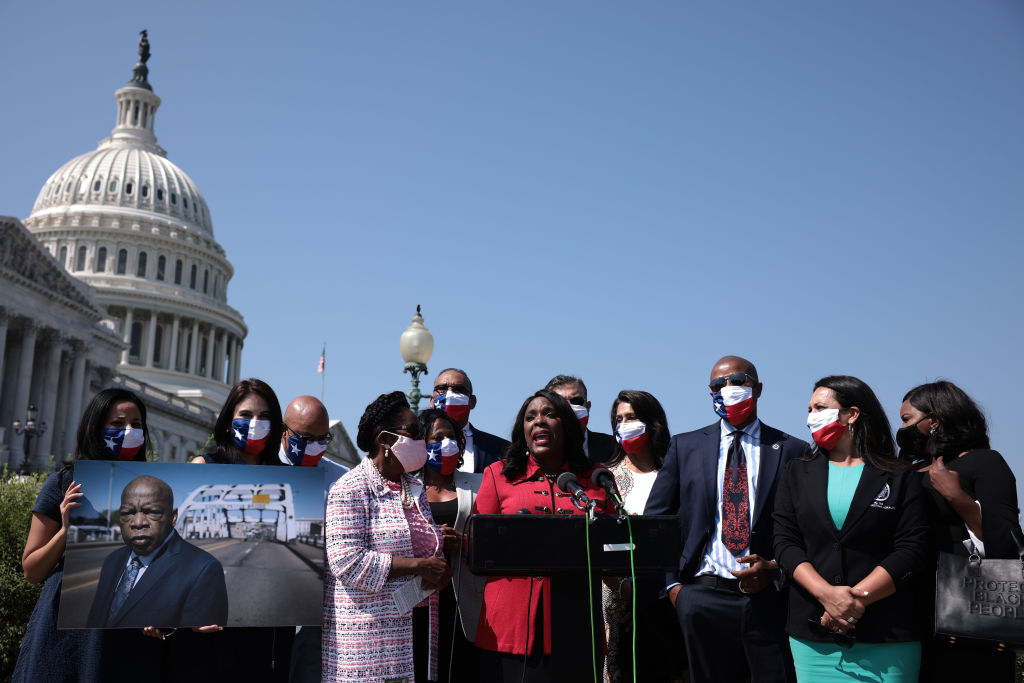
Personal cruelties persist, too. In September, white high school students in Portland, Ore., a white liberal bastion, were found to have engaged with others around the country in an online mock “slave trade” of thier few Black classmates. The following month in Davis County, Utah, the U.S. Justice Department announced the results of an investigation into what it described as a pattern of school teachers and administrators ignoring racial harassment, bullying and outright discrimination against the district’s few Black and Asian students. Those findings produced an agreement mandating training and other changes—but, in the words of Kristen Clarke, Assistant Attorney General for Civil Rights at the U.S. Department of Justice, help may have arrived too late. A few weeks after the agreement, a 10-year-old girl, Isabella “Izzy” Tichenor, died by suicide. Her family has said that she was relentlessly harassed and teased, both because she was autistic and because she was Black, and was called the n-word by other students. The district and DOJ have since announced plans to probe events surrounding Izzy’s death.
Only one day before Clarke made those comments at an annual gathering of attorneys general, the same DOJ division also announced that it would close its inquiry into the role that the white woman now known as Carolyn Bryant Donham played in the death of Emmett Till. In 1955, an all white and male Mississippi jury acquitted her then husband and his half-brother of Till’s murder; they later admitted to the crime.
But Houck points out that, even without the redress of a courtroom, Black people refused to let the world turn away from what had happened to Emmett Till, 14. Locally, he says, they boycotted the Bryants’ store, eventually forcing it’s sale. And his mother made the world confront her panic when Emmett was missing as well as the gruesome reality of her son’s death. The result galvanized the movement for civil rights.
And perhaps that is why that hug in the hall, that act of caring, captured my attention. Hardin says she raised her family on the gospel of color-blind living, but has abandoned that philosophy as too dangerous. When we spoke in early December, she told me that the nonprofit Families United 4 Justice Network organizes regular gatherings of families of people whose deaths have gone unaddressed by the criminal justice system. At them, she has gathered not just comfort, but also insight into what one must do to wage a war with a country that would rather look away.
The year that is ending has left little hope that 2022 could somehow be one in which her effort would not be needed.
—With reporting by Leslie Dickstein and Simmone Shah
More Must-Reads From TIME
- The 100 Most Influential People of 2024
- The Revolution of Yulia Navalnaya
- 6 Compliments That Land Every Time
- What's the Deal With the Bitcoin Halving?
- If You're Dating Right Now , You're Brave: Column
- The AI That Could Heal a Divided Internet
- Fallout Is a Brilliant Model for the Future of Video Game Adaptations
- Want Weekly Recs on What to Watch, Read, and More? Sign Up for Worth Your Time
Contact us at letters@time.com